|
It was announced today that Karen is receiving the 2017 International Environment Award from Recipharm in Stockholm. This is an award to recognize "best environmental practice or innovation within the pharmacy and health care industries or academia" and was first awarded in 2008. Karen will be presented the award in Stockholm later this year at a workshop on research needs for pharmaceuticals in the environment.
The award is a big honour for her but also speaks volumes about the great team of collaborators involved in this research, the generous funding received from many different organizations, her supportive family, and the impact of the science done at the IISD Experimental Lakes Area, where the whole lake experiment was done from 1999-2010 to understand how the estrogen in the birth control pill affects aquatic ecosystems.
0 Comments
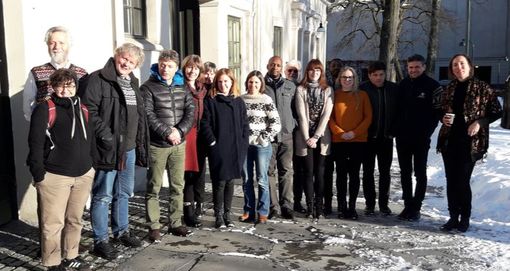 There has been a lot of traveling these past few months by lab members. Kelli Charbonneau was up in Sault Ste. Marie, ON, to work at the Canadian Forest Service (CFS) labs to process invertebrate samples from her field work in the Batchawana watershed. Lots got done and there was some great help from the staff at CFS. Thank you! Jennifer Thera was in San Francisco at the US Geological Survey labs in Menlo Park to analyze her food web samples for selenium. She worked in Robin Stewart's lab and packed a lot of analyses (and a side trip for whale watching) into her time in sunny California. Karen has made several trips to Ottawa for NSERC scholarship and grant meetings (and some skating on the canal) and spent some time in Oslo to participate in discussions about a new project on e-waste in Tanzania and to give a seminar at the University of Oslo. Here is a picture of the group she met with including her host Katrine Borga on the far right. Most recently Karen was in Victoria, BC, with the Scientific Committee to plan the summer ASLO meeting. The program is gearing up to be a great one and of course Victoria will be lovely in June. This is some of the group working on session scheduling the old-fashioned, interactive way. Municipal wastewaters contain a diverse suite of contaminants (pharmaceuticals, personal care product additives, nutrients, organics, metals), some of which can affect the health of fish and other aquatic life living downstream of these discharges. Collectively these wastewaters also make up the largest total discharge by volume in Canada. The Canadian Water Network has assembled a national panel of experts to review known and emerging contaminants in these wastewaters and opportunities to reduce their discharge to the environment. I am looking forward to working with the team and to the meetings and discussions ahead. It will be a challenging but critical task to ensure the most effective investments in wastewater treatment are made. For more on the objectives, panel members and timeline, click here.
Each year McMaster hosts a fantastic Water Week filled with speakers, tours, documentaries and panel discussions. At the end of the week there are student posters and Kelli (middle left) won top prize. Congratulations Kelli! She was presented her award by the charismatic Water Brothers after they finished an engaging presentation on some global water issues and the award-winning documentaries they produce. My favourite clip was from the Experimental Lakes Area (stay tuned) but a close second was the hilarious fishing scenes in Carpageddon. It was a great way to end a fun-filled week.
Kelli Charbonneau was recently awarded the 2018 Hynes Scholarship from the Canadian Rivers Institute (CRI). Each year this award is given to one student that is doing research that both builds on Dr. Noel Hynes' legacy as the "father of running water ecology" and that supports CRI's vision "to make every river a healthy river". Congratulations Kelli on receiving this award!
Kelli (below right), Bethany (below left), Jennifer and I spent a fun-filled and fascinating week at the International Conference on Mercury as a Global Pollutant in Providence. It was great to get all the feedback on our posters and presentations, learn about the cool new mercury research being done worldwide and the latest on the Minamata Convention, catch up with amazing researchers and friends, and participate on a panel Friday morning about how environmental change affects mercury risks to fish, wildlife and humans.
|
Archives
March 2018
Categories |
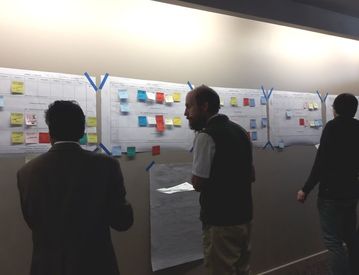
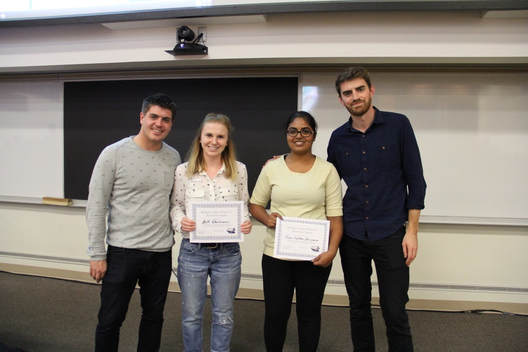
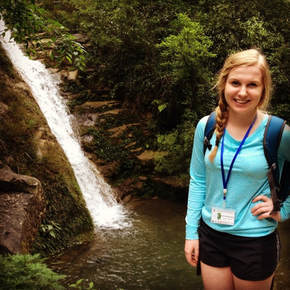
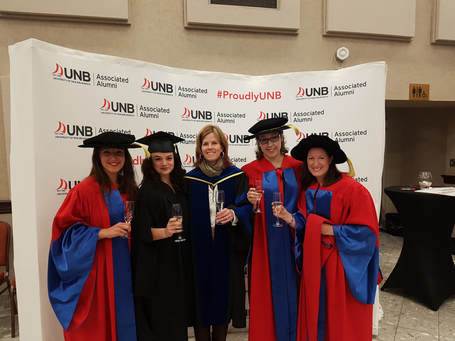
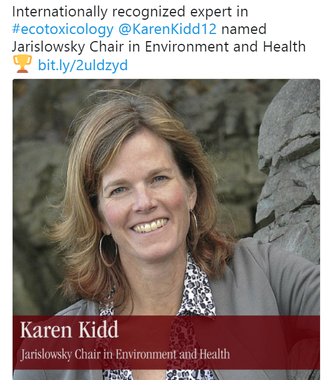
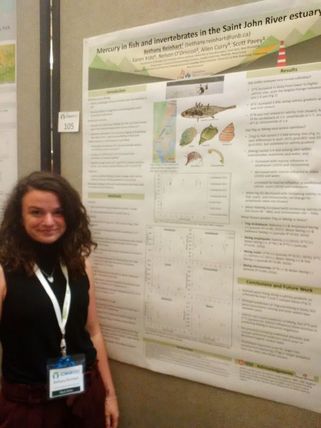
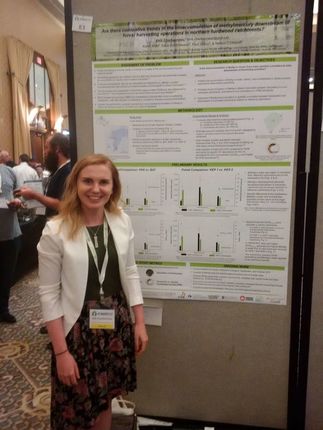
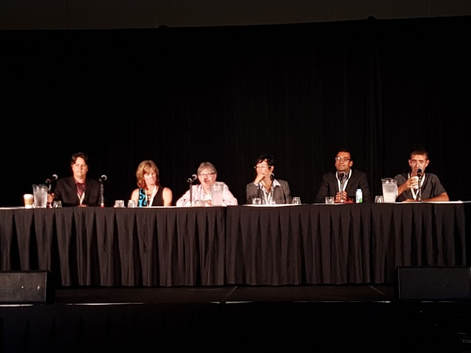
 RSS Feed
RSS Feed
